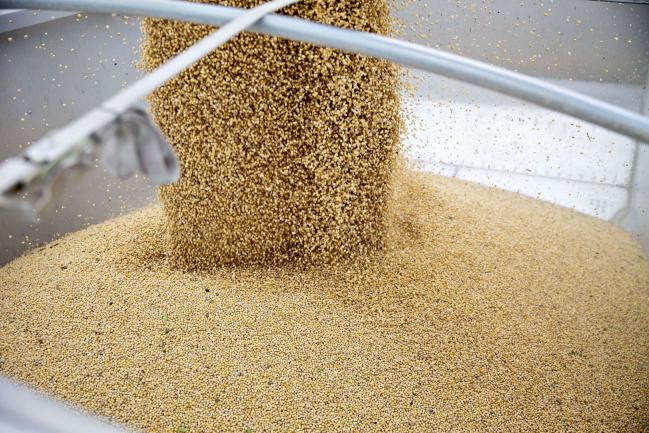(Bloomberg) -- The Trump administration plans to push for a commitment from China to resume imports of U.S. soybeans in any trade accord reached between the world’s two largest economies, a top agricultural official said Thursday.
China slapped a 25 percent retaliatory tariff on American-grown beans, which halted trade flow and left U.S. farmers scrambling to find storage in hopes of a resolution. The Asian nation has turned to South America to replace U.S. supply, sparking concern that the trade war may have lasting effects.
While the U.S. has been pushing for higher sales of agricultural products generally, U.S. Deputy Secretary of Agriculture Steve Censky said any trade pact would also address the resumption of soybean sales specifically, since that was targeted in the trade war.
“We would want to make sure it includes the commodities that we normally have exported there that have been affected by their retaliation,” Censky said in an interview in Chicago.
Censky, who previously headed the American Soybean Association, said President Donald Trump would be looking for a “robust level of commitments from China for purchases, because we want to make sure that we resume our sales.”
Trump and China’s President Xi Jinping are scheduled to meet over dinner later this month at the Group of 20 summit in Buenos Aires. Commerce Secretary Wilbur Ross said in an interview Thursday that the two leaders will focus on the “big picture.”
In earlier remarks to the Annual Waterways Symposium, Censky said China was “strategic” in inflicting “pain” on Trump’s rural political base.
In July, the administration announced that it would deliver $12 billion in aid to farmers caught in the cross fire of escalating trade tensions. Last month, U.S. Agriculture Secretary Sonny Perdue said the administration has no plans to extend aid to farmers in 2019.
Domestically, Censky said the administration has its work cut out to win over the new Congress on the new U.S.-Mexico-Canada trade pact. Democrats will now control the House, though Republicans maintain a majority in the Senate.
“It is not going to be a slam dunk that Congress is going to approve that agreement,” he said.
